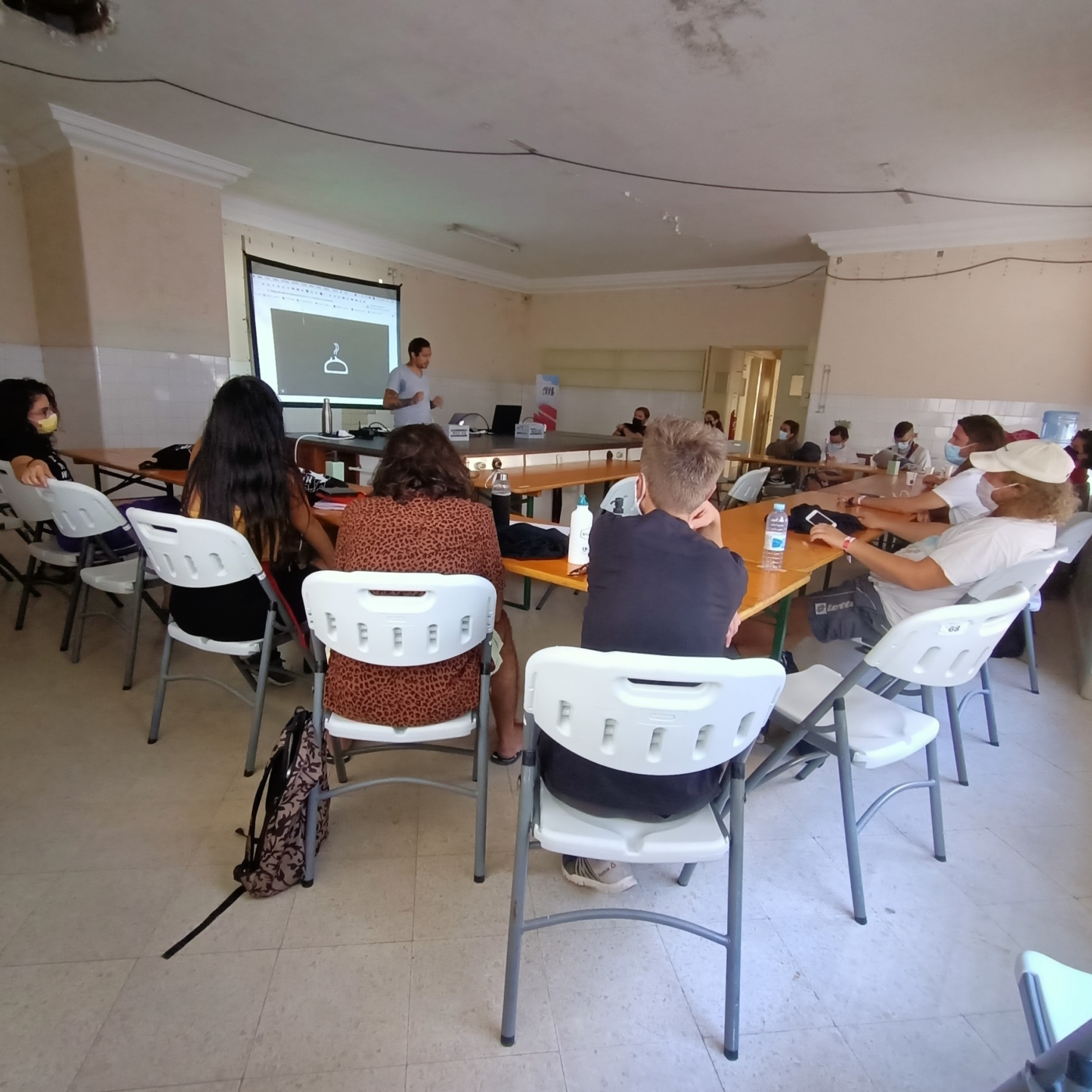Can you introduce yourself briefly and tell us a bit about your career in the music industry?
My name is Juan Cubaque, I was born and raised in Bogota, Colombia, and I’ve been into music since age 11 when I started drumming. I played live and recorded for a few local bands and projects between 2008–2012. I also studied to be a sound & audio technician in 2010 and finally I moved to Paris in 2013 to study musicology. I finished my master in compositional research at Paris VIII university in July of this year (2021).
I started working in Cézame in 2016 doing the tagging of our catalog, I moved to the commercial development of Spanish-speaking territories around 2018 and since early 2020 I’m an artistic director of Cézame Latin which is (you guessed it) our Latin music label.
What is your connection with music and with artists?
In my daily life I would define my connection to music as absolute. Inside or outside of the office I’m constantly consuming music and expanding my musical knowledge just for pleasure. But more precisely in my work I interact mainly with the label I’m responsible for: I’m in charge of finding interesting new music that fits the aesthetics we’re looking for, making the selection of the tracks, creating a coherent idea for an album, decide the tracklist, send the tracks to mastering, make the descriptions of each album and track, find the right artwork to go with each album/playlist, etc.
Concerning artists, my connection is both human and administrative: I’m responsible for finding them, and for this I have to understand their universe as it should be related to ours. In that sense it is a pure human connection over good musical taste which can even lead to friendships in some cases. Then the administrative part consists in negotiating a deal with them, answering any questions they might have regarding our contracts, etc. Once we have a deal, and the track/album has been released I do the follow-up if any synchronisations have been done with their music, and of course giving updates and information of their royalty collection.
According to you, what are the interests for an emerging artist to sync their work.
There are two main ones; economic and marketing (although they’re not the only ones). There’s an economic interest because if you get synched you get royalties, and the more the better. Simple. Then there’s a marketing interest, because people will be constantly listening to your music, and believe me, if they are into it they’ll look for you and find you somehow online. Imagine being synched in a Netflix series, or in a big brand advertising on TV, this will be seen by thousands of people at a time and over and over again, it’s potentially more efficient to boost an artist carrier than any concert/tour/festival or studio album released in a streaming platform, specially nowadays when live events are in a very precarious situation due to the health crisis.
As an anecdote, we didn’t use to deal with digital distribution, as it’s not at all our main source of revenue, but people kept on asking where they could find our artist’s music other than our website, so we decided to distribute our catalogue in the main streaming platforms, just so people could listen and buy the music as particulars if they wanted, I think that says it all.
What would be your top 3 pieces of advice to an emerging musician?
1. As a general advice for whatever you do in this industry, whether it is production music, live events or commercial music, never stop talking about it with people you meet on any occasion and in any context. Express your passion for your career as it can bring you many opportunities. Ever since I decided to work in music I’ve been very open about it, and it is interesting to see how other people react and are always willing to encourage me to talk and “introduce me to a friend/relative” who also works in the industry. Never underestimate these types of connections, as they have a personal weight already leaning to your advantage, and little by little this can open the doors to places you’d never imagined. This can be even more efficient to build up a career than any kind of diploma.
2. As a musician, always be and stay humble. Remember that just because you are in the beginning of the production chain you are not better than the people working in the rest of the chain. Hierarchies are a social construct, and as the music industry democratizes it becomes clearer and clearer that what will make you be successful is not the quantity of followers, views, or fans you might have in any given social network, but the quality of the people who surround you and can make you nail or fail in your creative projects. Respect them, appreciate them and always show gratitude towards them, ALWAYS. Music industry professionals are not working FOR you, they are working WITH you.
3. Instead of appropriating other people’s/culture’s aesthetics to your own work to try and sound “original”, or try to keep up with whatever style you might think its “popular” or “trending” nowadays, look deep inside your own roots, own that, and exploit that to the maximum, as it is infinite. You can then mix that essence of yours with new technologies or certain aesthetics that might influence your sound, but I can guarantee if you apply this perspective to your creations you will never lose authenticity. Think about the sounds you heard when you were a child, the musical environment and the culture you grew up in, what makes you YOU, beyond just what you consume or was put in front of you by an algorithm. That is what you can give best to the world, in a musical sense, because technically no one else can! Even if someone else grew up in the same city and plays the same instruments as you, if they try to reproduce your style they’ll sound fake or “trying too hard”, when for you it’ll be almost like second nature. Likewise, think that this also applies back to you when you try to emulate someone else’s cultural aesthetics. If after reflecting on this you still want to apply someone else’s/other culture’s aesthetics to your work for whatever reason, invite them to collaborate with you, so you can both bring your essence to the game and create a piece out of cultural appreciation, not appropriation. Don’t be selfish, cultural appropriation is messed up, don’t do it, it never ages well.
What do you think the job of an artist will look like in 2030?
I think as this late stage of capitalism and the arrival of new technologies advances, artists will become more and more “entrepreneurs” of creativity than actual technically skilled people who can express a feeling or pass a message through playing or singing or performing. It’s more business-driven than actually passionately/emotionally-driven, and we can already see the beginning of this with the reggaeton phenomenon, and don’t get me wrong I love reggaeton, but I love it mainly because it’s engineered so that I love it, not because I actually have a deep connection to it, as I do with cumbia or latin jazz or punk.
It can be compared to when recorded music technologies arrived to the western world and music became a product, instead of being a tool for social interaction, just as for example the non-western indigenous communities still use their ancestral sounds as part of their rituals for different activities.
At the same time I think the musical offer will be more diverse than ever as both music creation and distribution are in a democratisation process, therefore everyone will always have something “new” to show, and this “new” thing will always have a more authentic feel than anything else re-produced and re-interpreted millions of times before like western classical music, or rock.


